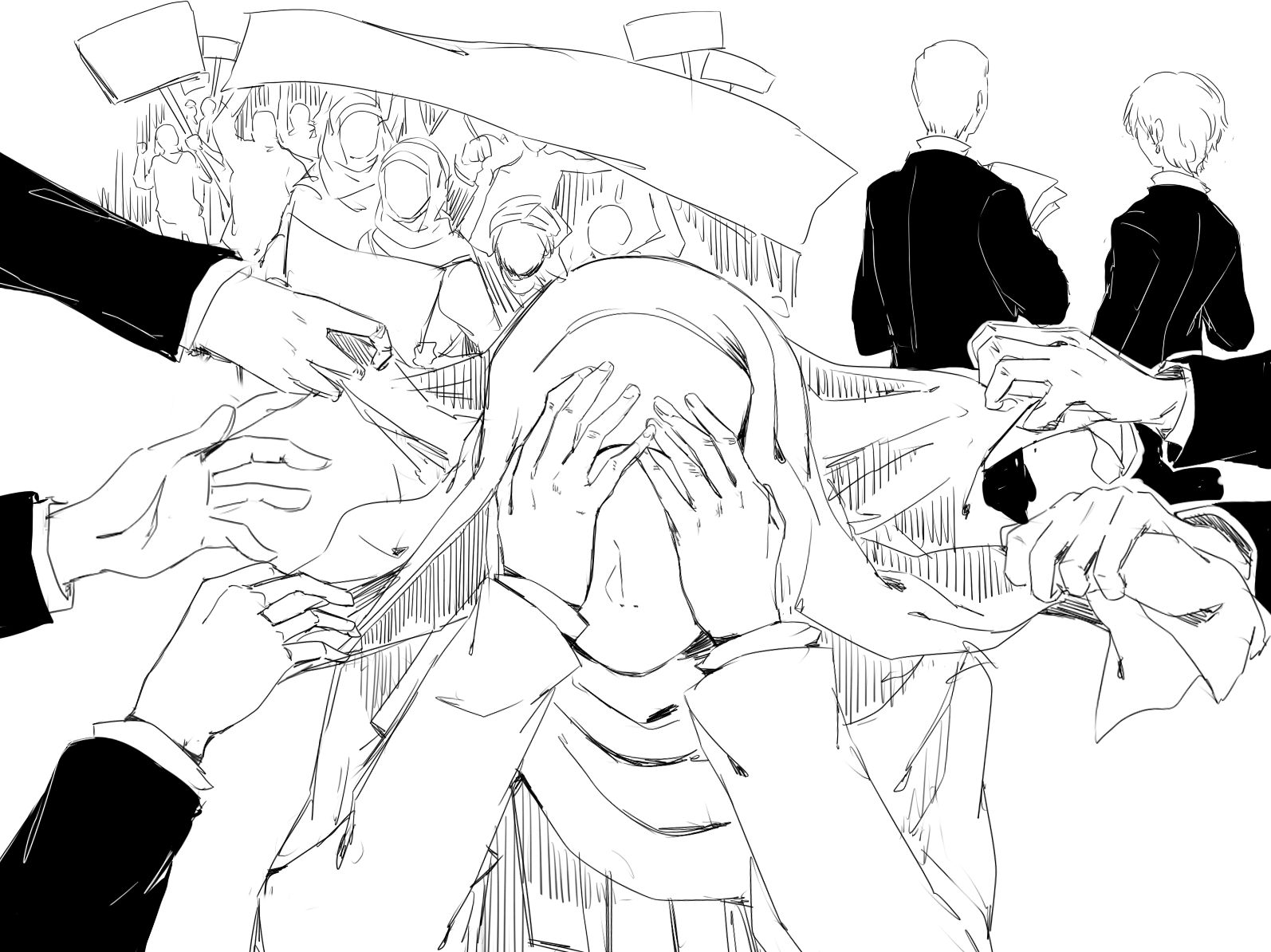At first glance, there may be much to applaud in the “Charter of Values.” Its claims to reinforce gender equality and religious state neutrality are commendable. In such a culturally diverse society, remaining neutral prevents the state from favouring any particular group over others, allowing it to view all faith groups and communities on equal footing. In this sense, the state upholds its principle of freedom of religion, protecting and preserving the beliefs and rights of expression of its citizens regardless of faith or lack thereof. In addition, providing equal job opportunities for both men and women, with equal pay and benefits, will improve social justice and bolster the economic well being of Quebec families and individuals.
Yet under further scrutiny, it becomes clear that the charter’s values have serious flaws. The charter argues that in order to maintain state neutrality, its representatives must themselves be neutral. This seems like a reasonable statement, for how could a state be neutral towards different beliefs if its agents are not? But herein lies the focal point: what makes a state representative neutral? Of course, the agent’s behaviour and work ethic are the ultimate determinants, but according to the charter, prohibiting state representatives from wearing conspicuous religious symbols will help maintain neutrality. Thus, neutrality must be expressed both internally and externally to truly take effect.
However, the measure seems to defeat its own purpose. If the state aims to be neutral in order to guarantee freedom of thought and religion, it cannot do so by precisely limiting said freedom. By legislating such measures, Quebec’s government is reflecting an image of non-tolerance to the world, as well as to its own citizens. Canadians are critical of Saudi Arabia and Iran for completely imposing the Islamic veil on its citizens, so why should they themselves allow the complete prohibition of this veil many Muslim women freely choose to wear?
By imposing a dress code, Quebec runs the risk of ostracizing many well integrated citizens. Indeed, many civil servants will have to face an uncomfortable dilemma, being forced into either stepping down from their positions, or discarding their personal beliefs. This coercion will be perceived by many communities as Quebec taking a stance against their belief, and so in their eyes the state will have failed its mission to remain neutral. Rather than reinforcing social cohesion, the measure will actually fracture it. In France, the very same measure bolstered sectarian identity, dividing the indivisible Republic.
As for the charter’s other aim—the establishment of full equality between men and women—the imposition of a dress code will work against this as well. Many women upholding the Islamic veil will not have equal job opportunities in contrast to Muslim men, who do not have a dress code as obvious as their counterparts. The lack of equal job opportunities in the many professional sectors affected by the measure will result in many faith groups being unable to integrate into the workforce, ultimately leading to serious social grievances within Quebec.
This is why the essence of state neutrality lies in the state’s agents’ dealings and decisions, not in their appearance. The charter claims that Quebec is a pluralistic society, so why should its government not reflect this pluralism? An individual living in a state protecting his or her freedom of thought and religion thanks to the principle of neutrality will strive to enact this neutrality in all his or her dealings. In short, it is not neutral to impose a prohibition on external religious signs. Rather, true neutrality on the part of state representatives lies in cherishing impartiality as a fundamental element within their profession. This ideal is exemplified in the Qur’an, which beautifully states: “O you who have believed, be persistently standing firm in justice, witnesses for Allah, even if it be against yourselves or parents and relatives. Whether one is rich or poor, Allah is more worthy of both. So follow not [personal] inclination, lest you not be just. And if you distort [your testimony] or refuse [to give it], then indeed Allah is ever acquainted with what you do.” Surat An Nisa (The Women) [4: 135]
Youcef Rahmani is the VP External of the Muslim Student Association.
Continuing the campus conversation, hear what Helin Azizoglu, Stefan Novakovic, and Nathan Gibbard have to say.








Pingback: A campus conversation: The Quebec charter of values | McGill Tribune
“dividing the indivisible republic” ^^
Pingback: Cultural appropriation in pursuit of a noble cause | McGill Tribune
I truly wonder if is recommended for muslim woman to work in a non-muslim country.. I guess this type of problems.. are an obvious result of a combination of things that were not supposed to be together in the first place.
“Yet under further scrutiny” I hope it didn’t take too much scrutiny